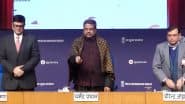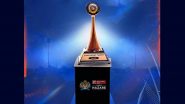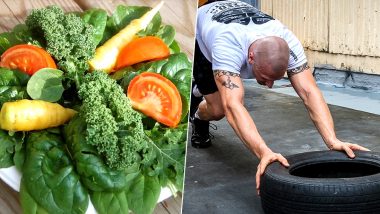Our body requires micronutrients for growth and smooth functioning. We tend to pay more attention to the intake of macronutrients- carbs, protein and fats. In that process, we ignore the importance of micros that are essential vitamins and minerals. One such mineral is magnesium, which is responsible for regulating around 300 enzyme functions in the body. In fact, insufficient magnesium in the body can affect your performance during high-intensity workout sessions. Let's take a look at the relationship between magnesium and exercise. Below is also the list of foods to be eaten to avoid magnesium deficiency. WORST Exercises and Workout Mistakes That Will RUIN Your Fitness Goals.
Magnesium also plays an important role in weight loss, provided you follow an overall good diet assisted with a good workout programme. Its intake can boost exercising performance and at the same time also help in muscle recovery and avoiding soreness. Magnesium is also known as a natural mood booster and aids in relieving stress and anxiety.
How Magnesium Deficiency Can Affect Exercise
According to a magnesium research study published in the US National Library of Medicine National Institutes of Health in the year 2006, magnesium is involved in numerous processes that affect muscle function. Right from oxygen uptake, energy production to electrolyte balance, magnesium intake plays a vital role. As per the research conducted in this study, exercise induces a redistribution of magnesium in the body to accommodate metabolic needs. Therefore, marginal magnesium deficiency impairs exercise performance and amplifies the negative consequences of strenuous exercise. High-intensity exercises like CrossFit increase urinary and sweat losses that may increase magnesium requirements by 10-20 percent.
Foods to Be Eaten By Athletes to Avoid Magnesium Deficiency
Magnesium requirement for male athletes is 260 mg/day while for females it is 220 mg/day. The recommended dietary allowance (RDA) should be planned in such a way that it doesn't fall short of magnesium. The biggest thing for athletes in sports like wrestling is to keep weight under control, which can hamper the magnesium intake. However, foods like green leafy vegetables-spinach, kale, broccoli should be a regular part of the diet as these are also loaded with other important minerals like iron, potassium, etc. Apart from that, nuts, brown rice and wholegrain foods should also be regularly eaten. Yoghurt, tofu, banana, dark chocolates and quinoa are some other food items rich in magnesium.
Irrespective of whether you are an athlete or not, magnesium intake is essential for the body. Magnesium helps turn the food eaten into energy and ensures parathyroid glands (hormone important for bone health) work normally. If the body gets muscle cramp along with tiredness and weakness after the workout on frequent occasion, then it might well be suffering from magnesium deficiency.
(The above story first appeared on LatestLY on Dec 30, 2019 03:04 PM IST. For more news and updates on politics, world, sports, entertainment and lifestyle, log on to our website latestly.com).













 Quickly
Quickly




















